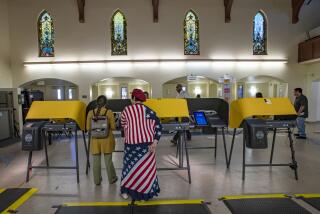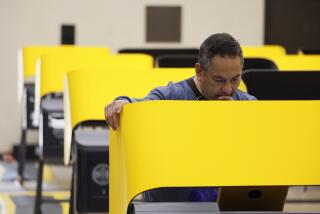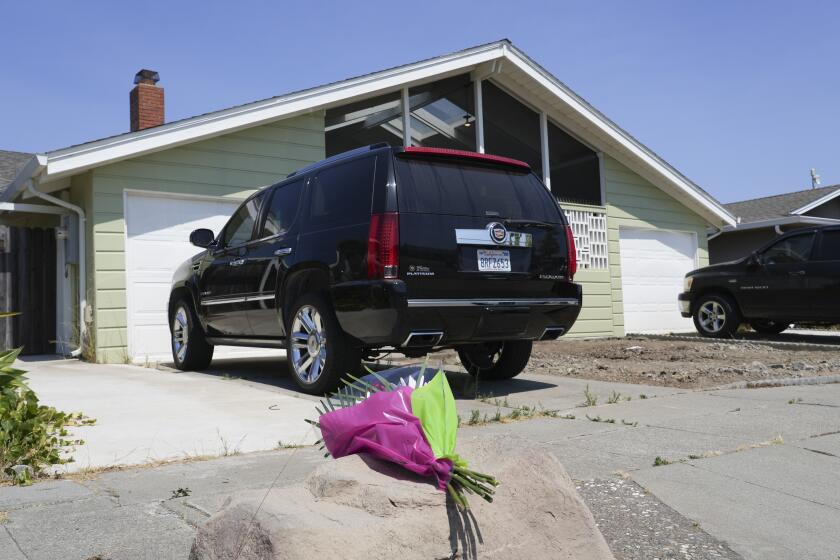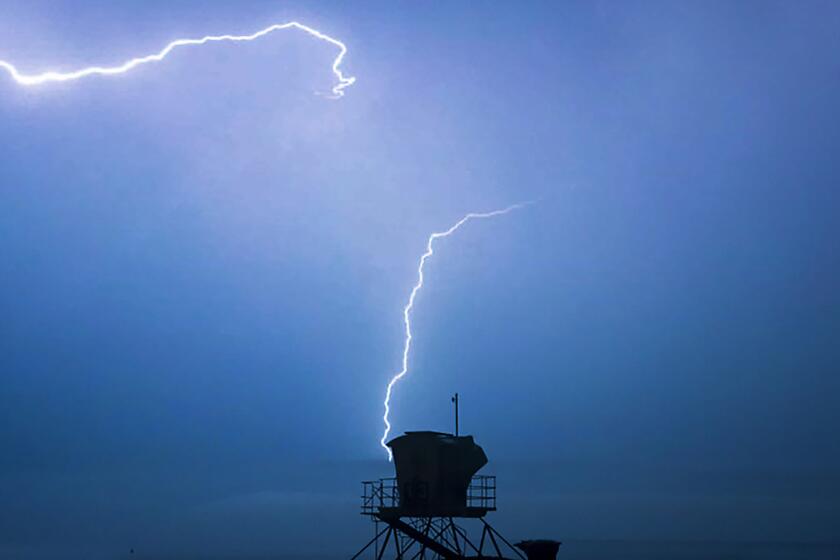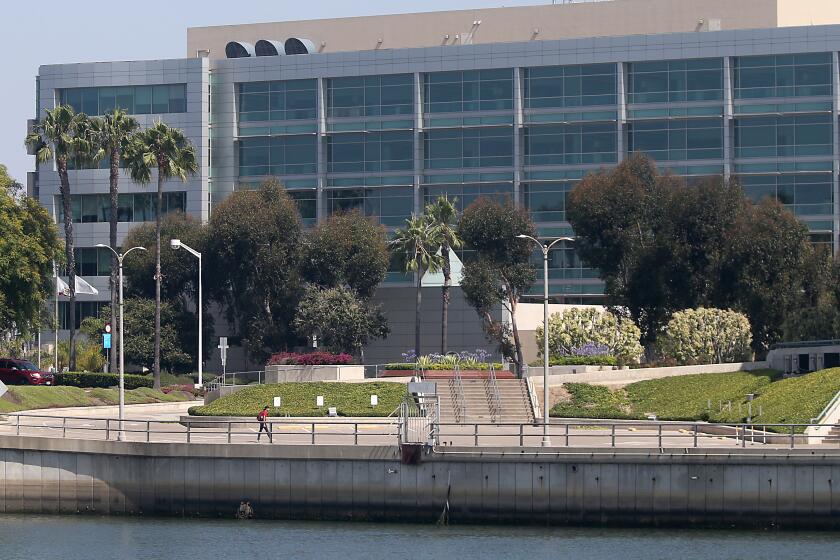Why bother voting in city elections? Here’s why
So here’s the question of the day:
Do people blow off voting because they think nothing will change, or does nothing change because so many people don’t bother to vote?
California, and Los Angeles in particular, are not alone in recording appalling voter turnout numbers. It’s happening in many parts of the United States, particularly in big cities. And in fairness, there weren’t exactly any political heavyweights to draw attention to Los Angeles’ primary election this time.
But when 9 out of 10 registered voters skip an election in a service-deficient city with a projected budget deficit of $160 million, and several thousand votes are enough to win a City Council seat in a metropolis of 4 million people, why even bother with elections?
Why not just have public employee labor unions and developers each appoint a handful of council members and call it a day?
Oh, wait a minute. That’s already happening.
When I stood on a downtown Los Angeles street the day after the election, trying almost in vain to find anyone who had voted, I heard all the usual excuses for sitting this one out.
Some people didn’t know there was an election.
Some were too busy to vote or miffed because they were asked to vote so often.
Some abstained because they hadn’t bothered to research issues or candidates.
And some thought voting is a waste of time because campaign promises die quick deaths, special interests rule and the system is rigged.
Yeah, it is rigged, especially since the diabolical U.S. Supreme Court decision making it even easier for money to corrupt the process. But I think we’re too quick to give cynical non-voters a pass, as if their can’t-be-bothered attitude is a badge of honor. Is it really cynicism, or is it ignorance, apathy or good old-fashioned laziness?
Miguel Santana, who knows more about L.A.’s city finances than anyone, told me he volunteered at his polling place in downtown Los Angeles on election day. Santana, the city’s chief administrative officer, was disappointed to see only 135 out of 900 registered voters in his precinct cast ballots, even though — shockingly enough — that’s actually a little above the city average.
Santana has warned for years that without better management and cost controls, it’s unreasonable to expect vastly improved city services any time soon, even if an improving economy chips away at the projected budget deficit. That alone should be enough to get people to the polls, but Santana said a City Hall colleague also served as a poll volunteer and saw even fewer voters than he did.
“She had 22 all day,” said Santana.
Santana has helped prod mayors Antonio Villaraigosa and Eric Garcetti to rein in personnel and retiree costs, knock down deficits and gradually provide more of the basic services demanded by taxpayers. He sees the badly broken sidewalks when he walks his dog in downtown L.A., and he sees other breakdowns when he drives to Silver Lake to pick up his kids.
“I can count the number of abandoned couches I see, and the graffiti. I call it in like everybody should when they see bad streets and sidewalks,” said Santana. “I think fixing those things is about money, but it’s not exclusively about money. It’s about the fact that we don’t have a centralized way of picking up those couches.”
If you ask me, Santana is more honest about these unpleasant realities than the elected officials who are his bosses. He’s produced the numbers on the growing cost of employee and retiree costs and the declining availability of money to fix streets, sidewalks, rec centers and bursting water pipes, all of which will cost tens of billions of dollars.
Elected officials don’t have much of a long-term plan to get on top of any of that. And if you follow the news, you know that City Hall’s failures include the disastrous rollout of a new billing system at the Department of Water and Power. State auditors have blasted city officials for the exorbitant cost and for not heeding warnings that the system wasn’t ready to be launched.
You may also know that while the city of Burbank is rushing to address concerns about mansionization, Los Angeles officials have moved at a sloth’s pace to implement temporary fixes, let alone enact lasting reforms. Meanwhile, run-amok development is permanently changing neighborhoods for the worse.
Are these reasons to skip voting, or to vote two and three times and even cast ballots in the names of the dead, if you can sneak it past the authorities?
City Hall watchdog Jack Humphreville, who never stops barking, thinks city leaders have fallen flat on the big stuff, and that some of the most important recommendations from the 2020 Commission have been ignored by the man who ordered the outside review — City Council President Herb Wesson.
Humphreville believes City Hall desperately needs the proposed office of transparency and accountability, for instance, to deal with billions of dollars worth of unfunded pensions and falling-apart infrastructure.
Next time a broken water main washes your car into a sinkhole, ask yourself: If I’d voted in the last election might Wesson and his ilk be less inclined to think they can fiddle while Reseda burns?
Humphreville also endorses 2020’s call for an independent utility rate commission to watch over the historically mismanaged DWP.
“I’d wanna put on the ballot a charter amendment where you make the city live within its means with long-term planning and balanced budgets,” he said. “Cut taxes? Be my guest. Raise taxes? Be my guest. But you’ve got to balance the budget, pay the pensions and fix the roads.”
Just don’t count on a good outcome on the charter amendment vote if most voters stay home and help fulfill their prophesy that nothing will change anyway.
The change the city needs to survive is going to take time, Santana said. The deterioration of the infrastructure happened over the course of many decades and several mayoral administrations, and it happened because there wasn’t enough fiscal discipline and planning.
And really, how many public servants are going to do all that genuinely hard and unpleasant work when the best available evidence — voter turnout — suggests that so few people really care?
More to Read
Start your day right
Sign up for Essential California for news, features and recommendations from the L.A. Times and beyond in your inbox six days a week.
You may occasionally receive promotional content from the Los Angeles Times.

